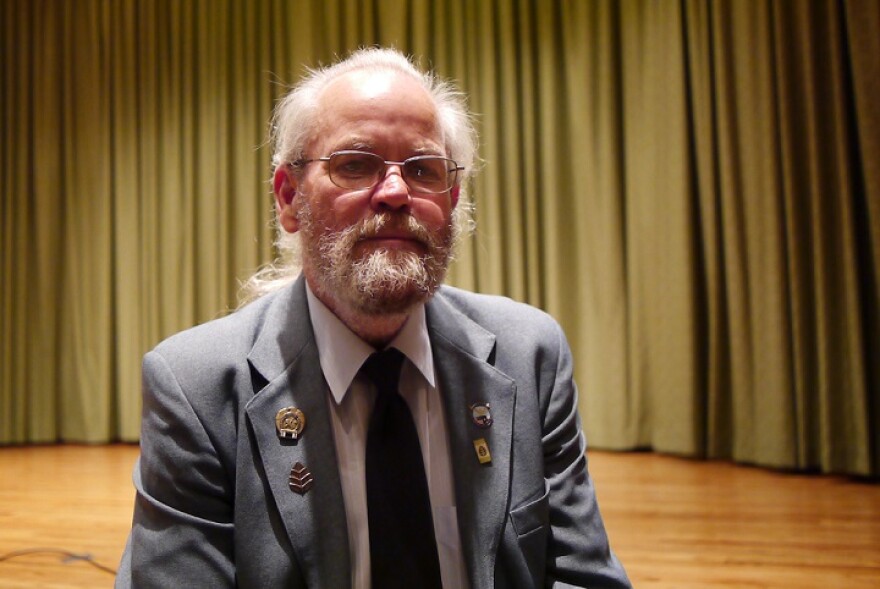More than half a million Texas adults suffer from a serious and persistent mental illness. That’s why the Meadows Mental Health Policy Institute is traveling across Texas -- and stopped in Fort Worth this week to hear some powerful stories.
During the first 90 days of his tour in Vietnam, Michael Killam says he felt invincible.
“I had weapons,” he said. “I had power over life and death. I could make people live or I could let them die. I became God-like.”
Killam was only 19 at the time. During his tour, he was captured for three days, hung upside down, and tortured for hours. Eventually, he escaped and returned to duty.
“We went to an orphanage that had been mortared,” Killam said. “And we had to get the kids out. I found a little baby. It had something in its chest. I pulled it out and its last breath came out ... and a lady slapped me and called me a baby killer. And I thought for a long time that I killed that baby. And my kids, I had four daughters. I wouldn’t touch them. I thought I’d kill them.”
For decades, he’s had flashbacks.
“Every time it happened, I’d end up in the back of a police car,” he said. “And when they tried to take me, I’d fight like hell, I thought I was getting captured again.”
Arlington Mayor Robert Cluck says he sees too many police vehicles in front of the emergency room.
“We need to decriminalize mental health,” he said. “Just like if you have an appendicitis, we shouldn’t send a police car out to go and pick you up, take care of you.”
Cluck is also a doctor, and serves as the vice president for medical affairs at Arlington Memorial Hospital.
“Life is stressful,” he said. “Families are stressful. Jobs are stressful. And it’s that stress level, I think, that really has a very negative impact on us, and I suggest to you, on our length of life, without help.”
There is help, says Susan Garnett, CEO of Mental Health Mental Retardation Tarrant, known as MHMR. She says Tarrant County has built a robust crisis service system, including one that helps police officers called The Law Liaison program.
“Perhaps they’ve been called out to a scene and they’re trying to determine if this a mental health matter,” she said. “Is the person already known to the mental health system? ... What advice do our staff have for them? Is it the sort of circumstance where our staff need to come out on scene?”
MHMR already has a mobile crisis outreach team that’s available 24 hours a day, to help anyone. Garnett says the police line averaged only 60 calls a month when it started. Today, that number is 800.
Arlington’s Police Department recently teamed with MHMR on a new program, says Lt. Kimberly Harris.
“I started pairing the mental health law liaison from Tarrant County MHMR with a patrol officer,” she said. “And they actually went to homes to do wellness checks and to do mental health evaluations for people that were referred to them through other patrol officers.”
Arlington now has at least 30 mental health patrol officers.
It’s reassuring news for Killam, the Vietnam War vet. He now works for MHMR as a program manager in Veterans Services. His story drew a standing ovation this week.
“I don’t do this for applause,” he said. “I do it to help my brothers and sisters. There’s something when a veteran talks, everyone knows it. ”
In truth, he says, he does it because it makes him feel connected again.





